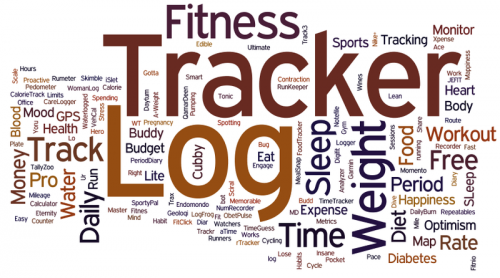
I have a dear family friend. She is highly educated, happily married, a wonderful mother, and incredibly successful in her career. She has also, however, always struggled with her weight. Like many people, she tried dieting about a million times. This produced the kind of yo-yo style results which bring people to maintain several wardrobes of varying sizes. Then, about five years ago, she started journaling. She wrote down everything she ate and the approximate caloric count of each item. With this tactic, this dear family friend was, for the first time, able to maintain her desired body size.
Don’t worry; this is not a post about how to lose weight. I could write one of those, but the anti-feminist self-loathing would probably be too much for me to bear. Rather, this is a short post about self-tracking. We all know that Cyborgologist Whitney Erin Boesel (@phenatypical) is our resident expert on self-tracking however, as she makes her way from one side of the country to the other, I will pick up the self-tracking ball and talk about some recent findings from the Pew Internet and American Life Project. more...







